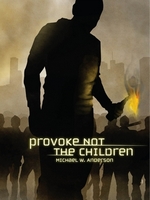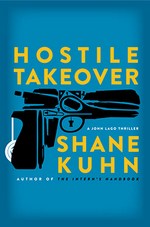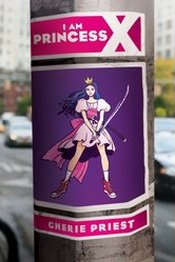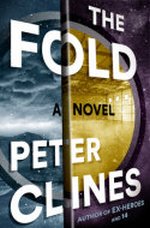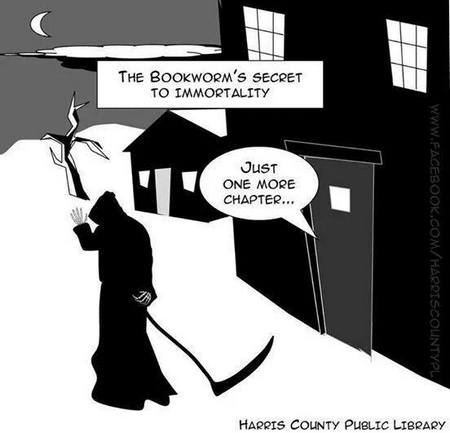by Michael W. Anderson
Kindle Edition, 348 pg.
Amazon Digital Services, Inc., 2014
Read: August 27 – 31, 2014

Some dystopian futures seem plausible — even inevitable — 1984, The Hunger Games; while others seem impossible — Divergent, Red Rising. Anderson’s world is possibly the most plausible I’ve read.
In this future U. S., parents are no longer responsible for the day-to-day raising, nurturing, or educating of their children (they are still responsible for paying for all that). Instead, they entrust their children to the care of Proxies. Proxies are professional child-raisers. The idea is that these people know exactly what an individual child needs for full academic, social, psychological and physical progress and health, and are far better suited to ensuring children receive this care than an y parent could hope to. So after years and years of more and more parents turning to this option, it becomes mandatory for all children in the U. S. to be handed over to the professionals.
What do parents do with all this time they’re not, you know, parenting? Why, they’re making themselves the best possible versions of themselves that they can. Kids just get in the way of paying attention to yourself, your career, your well-being, and so on. (other than having someone to show off at parties and to inherit what you have left, I’m not sure what the point is to having kids in this world — but let’s just assume the biological imperatives win out or something.)
Now, with a government mandate of this size, regulations are going to come into play. And where there are regulations, you need people to enforce them. Enter our hero, Chase Stern. Chase is a Proxy Review Officer — he travels the Northwest working to make sure that children are being cared for by Proxies, and that the Proxies are doing things right.
Naturally, not all are. In fact, there’s a very disturbing number of Proxies getting away with fraud, abuse, and neglect. Chase blows the proverbial whistle on this unpleasant truth and is first publicly pilloried for this, but that soon turns into the opportunity for Chase to be part of the reforms of the Proxy Industry. The cure proposed may turn out to be worse for society as a whole, and the children in particular, than the disease.
Great premise, right? Hard to go wrong with a setup like that.
And yet, Anderson doesn’t quite pull it off. He’s close. I don’t think he was ready to write characters and a story to go with ideas this big quite yet. The pacing was strange at times, and I think the book would’ve been better served if we’d gotten to see more of the process involved — not just opening chapters with a “In the months/years since the end of the last chapter, many things happened”-type summary. Also, there’s a whole lot more telling than showing going on here, his characters gave a lot of speeches. Not quite as bad as Asimov in Foundation*, but along the same lines.
The biggest problem with this book is the characters. They’re flat. They’re not people. The novel is entirely from Chase’s perspective and he comes closest to being a person. But even he’s flat. There’s no growth, nothing other than his crusade to reform. Yes, Chase had been the kind of parent who was in a rush to get his kids Proxied so that he could fulfill himself, and then something happens and he changes into the kind of guy who cares about the welfare of children. Whatever changes he goes through — say, learning how to lobby congresspeople — just appear in between chapters.
That said, Maria, is one of the — I want to say evil, but she’s too shallow for that. Maria’s about the most wretched, vile, hateful character I’ve ever read (her husband, Conrad, is about as bad — but he does less, so maybe he’s just a self-centered twit, not a force for all that is wrong with the world). There are a couple of other characters here that are more actively malicious, too. Still, they’re all little more than amalgamation of characteristics. But Anderson has trouble with the white hat characters. Perhaps he understands human nature too well for that.
There was a very unfortunate typo in the edition I read — and I was taken out of the scene during the climatic confrontation. I’ve emailed the author and he said he’d be fixing it. That’s the big advantage of self-publishing ebooks. Anton Strout, for example, tells the story about someone pointing out a similar problem in one of his fight scenes years after the publication, which will remain in the paperbacks. Anderson’s error is gone. Welcome to the 21st century.
Provoke Not the Children had a killer concept, and a chilling world that you’ll keep thinking about for days. The story’s almost, but not quite where it needs to be. I still recommend it in the end, but don’t expect too much from the narrative. I expect in a book or two, Anderson’s execution will match his world-building.
—
* I remember that being very speech-filled, I think that’s even talked about in the forward Asimov wrote in the edition I last read 20+ years ago. Hope I’m not wrong about that, it’s just the best example I could come up with at the moment. Besides, being compared to Asimov in Foundation should be seen as a compliment.
—–




